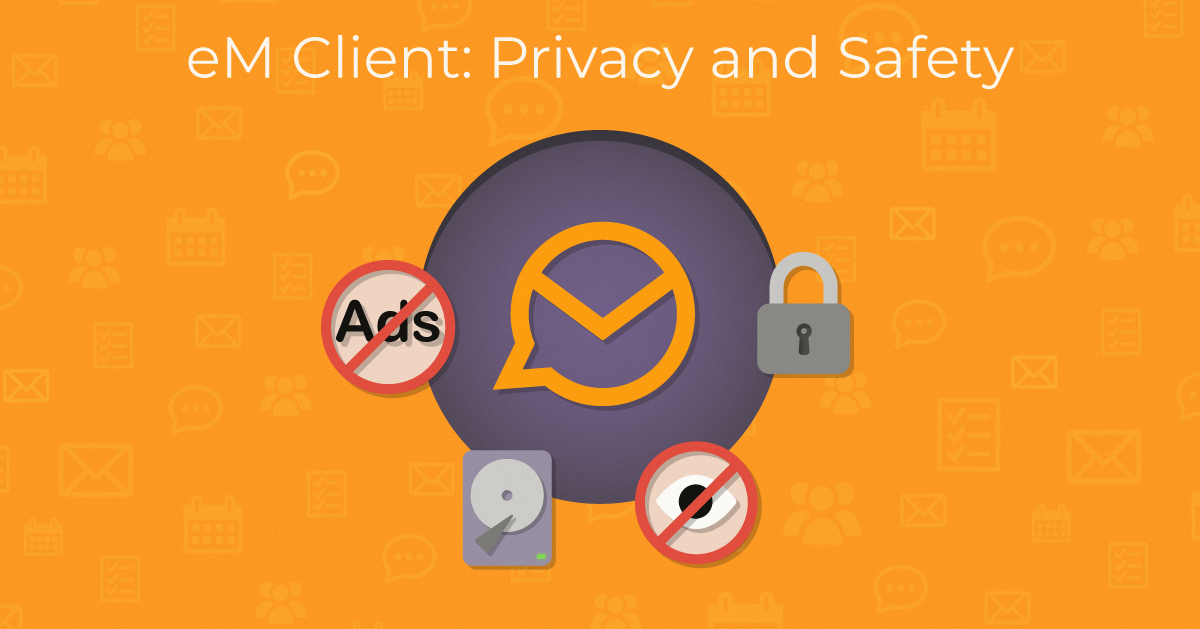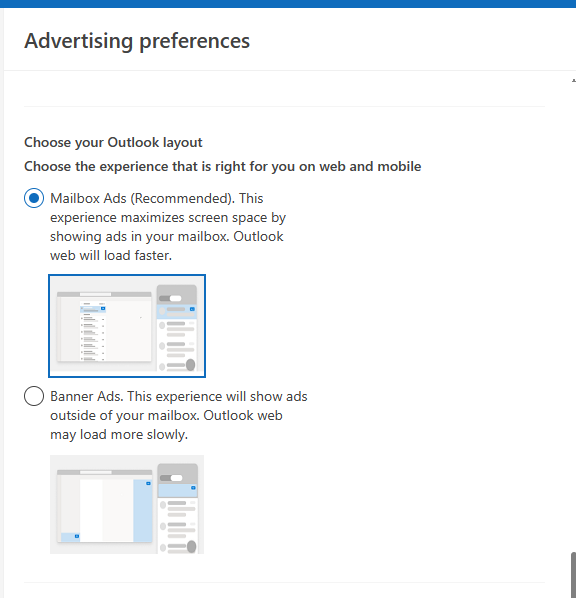Microsoft services are used by a lot of computer users on all platforms around the world - but the direction
they are taking their services in the current day might take their security into question. We’d like to weigh in
on the topic from the eM Client’s point of view as a creator of another email app.

Exchange on-premise sundown
A lot of companies want to make use of the Exchange server features but want to keep their data secure - having
your own on-premise server in your company was the way to go for many companies that take security seriously.
With the subscription plans released in 2021 this option has been taken away though - all will be in the cloud
now. Microsoft Exchange 2019 is the last version that offers “standard” Exchange licenses, which allow you to
install the server on your own hardware, and the “end of life” for this solution is set for 2025, just around
the corner. From then on, the only option will be to store your data on Microsoft’s machines.
Outlook’s unification
Microsoft’s goal to make their Outlook app the same on all devices and platforms is a reasonable one and one we
agree with - we have already taken this approach years ago with eM Client for macOS and when we started
working on our mobile apps. The app should feel the same no matter what device you use, and the interface
and features should feel familiar no matter which platform you move to, so Microsoft is finally catching up in
that aspect.
This would be a great step for Microsoft if they indeed unified all the features they have on all platforms -
but as many users noted, the New Outlook removed a lot of the options and features from the usual Microsoft
Outlook roster, and some really have us shaking out head - such as the option to access or even import PST files
(their own proprietary file type), lots of customization options for ribbons, rules, filters and advanced
search, message previews, message word-style editor to compose and more. In streamlining the program and making
it a replacement for both Windows Mail, MS Outlook and making it the same in webmail interface, a lot of useful
features seem to have been lost and while there is a chance that some might be added later in the New Outlook
development, many are not so optimistic.
That is not the worst news though - as something more troubling has happened with how New Outlook stores your
data.
Your accounts belong to New Outlook
Proton, an email provider known for its exceptional end-to-end encryption, has
recently released an article that has the email world spinning, accusing Microsoft of creating a powerful
data-collecting app rather than an email client in the New Outlook for Windows.
“Every account added to Microsoft Outlook will store all user data that only Microsoft has access to. Every
email, calendar appointment, contact, and file that is synced to Outlook will also be on Microsoft’s Cloud.
That data has a lot of value to Microsoft, and their access to it is rather frightening.”
Edward Komenda, 2024, Outlook
is Microsoft’s new data collection service
The most horrifying thing is that Microsoft would not only have access to the data stored in your Outlook.com or
Office365 mail accounts but all accounts you add to the email app - no matter what provider they are from, as
your login credentials will also be uploaded to the cloud. Microsoft is enabling itself to have access to all
your email accounts, at any time, without your knowledge, in the name of providing you with “rich, interactive
experiences” according to their Privacy page.
Even if the app claims you can switch back to old Outlook at any time, the data would already be stored by the
company - it is not possible to use New Outlook without synchronizing all data to Microsoft Cloud so once you
give it a try, the login details are already sent to
Microsoft servers.
Ads run the world
The New Outlook includes ads in the app and the only choice you have is to set where the ads will be shown - and
that happens even if you previously used a paid version of MS Outlook. Not only that, the default makes the ads
look like messages you received, making it more likely you click on them and provide more data to Microsoft and
its marketing partners.
 Advertising preferences in New Outlook
Advertising preferences in New Outlook
According to the findings Proton mentioned in their article, New Outlook does not keep your login credentials
and your data in your device - it is all uploaded and saved in their cloud and potentially made available to
their 772 external partners, to be used to improve their own products, send you personalized ads and in other
ways Big Tech makes money in this day.
Whether you want it or not, you will receive ads from Microsoft’s marketing partners and data about your use of
the app so they can improve their own products and marketing, making New Outlook just a glorified surveillance
tool for targeted advertising.
What to do?
Unless you can keep using your old version of Microsoft Outlook, it might be better to jump ship, as Microsoft
only plans to grow its marketing empire.
At eM Client we take security very seriously: we keep desktop client data in your computer and we do not plan to
change this. Your passwords are stored encrypted in the SQLite database in your device, as well as the Access
Tokens for the accounts using secure OAuth login. The data is not made available to the system, other apps, or
the eM Client servers. eM Client only synchronizes your license info and the minimal data we need to keep the
program functioning.
To be fully transparent - with our upcoming mail apps for iOS and Android the exception is made with Push Notifications - a feature that
unfortunately cannot work without your credentials synchronizing to our server, but we have taken every
precaution possible to make this feature secure, including undergoing and passing the security Audit
by Leviathan Security Group.
The feature is also never enabled automatically - you can enable/disable it per each account separately, at any
time. But this is not something you will ever need to worry about with the desktop eM Client for Windows and
macOS.
eM Client will never sell any of your data, credentials, or content of your emails
and will never show you targeted advertisements.
eM Client could be a great alternative for you if you are looking to replace your Outlook app - we provide a lot
of advanced and enterprise features in a user-friendly interface. You can get a paid version for a one-time
price or use the Free version for personal use - neither of which has ads anywhere in its interface. After you
install eM Client it will run in a 30-day trial with no registration needed, no strings attached - if you
dislike the app, you can uninstall it and we will never know. Try it out for yourself!